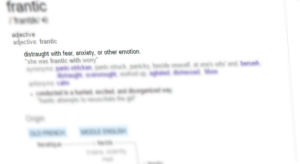
On Tuesday, I quoted Gmork, the evil servant of the Nothing from the Neverending story.
Of course, when the film-makers tried to depict author Michael Ende’s ‘Nothing’ they had to choose ‘something’ to show it. So they chose stormy clouds. It looked quite effective. In 1984.
In Michael Ende’s original story, the Nothing was more sinister than storm clouds. It was an emptiness that signified the death of ideas and dreams. It was madness to look at it. It was a hole in the soul, best described by one of Michael Ende’s fantasy creatures, a bark troll:
“You don’t feel a thing. There’s just something missing. And once it gets hold of you, something more is missing every day. Soon there won’t be anything left of us.”
And here’s the thing: I was once a servant of the Nothing. I think I might have done school leadership well at one point. But then someone pointed out that my action plans needed more measurable targets. And so I chose the easy things to measure – the half termly progress numbers that are actually meaningless. Then I heard that someone else was using non-negotiables in the school, and instead of saying “well that’s a doomed approach,” I decided I could set even more non-negotiables.
My actions plans were SMART. There was no room for original thought. My teachers could all look forward to being compliant. I had contributed to the death of ideas and dreams, replacing them with, well, nothing much.
As a person that depends on creativity for my own motivation, I had actually caused more more damage to myself than anyone else, but for all those teachers who remember the staff meetings with me standing up and sharing another new document, probably packed full of non-negotiables – I’m sorry.
I’m sure I’m not the only one. I’m sure there are leadership teams out there who’ve replaced inspiration for measurement, contributing to taking dreams away rather than building them up.

But there’s still time to come back. After all, Fantasia was rebuilt with only a grain of sand and some imagination. We can surely do the same with the UK education system and bring it back from the Nothing.
